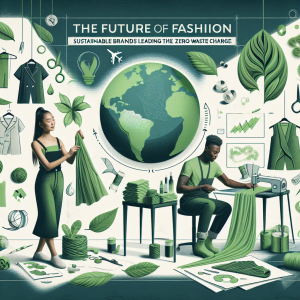Green Innovations Reshaping the Future
Green innovations are playing a pivotal role in reshaping our future, particularly as global concerns about climate change and environmental sustainability grow. One key area of innovation is renewable energy, which forms the backbone of a sustainable future. Solar power technology, for instance, has experienced remarkable advancements, including the development of bifacial solar panels that capture sunlight on both sides, increasing efficiency and energy yield. Additionally, floating solar farms have emerged as a practical solution to land scarcity, allowing solar panels to be installed on water bodies and reducing water evaporation.
Wind energy is another sector witnessing significant progress. Offshore wind farms are being constructed farther from coastlines, where wind speeds are higher and more consistent. Advanced turbine designs, such as vertical axis turbines, are being tested to optimize energy capture and reduce environmental impact. Moreover, the integration of AI technology in wind energy systems allows for predictive maintenance and improved energy management, enhancing overall efficiency.
In the realm of transportation, electric vehicles (EVs) are gaining unprecedented traction. Breakthroughs in battery technology, such as solid-state batteries, promise greater energy density and faster charging times, addressing two major barriers to widespread EV adoption. Furthermore, the proliferation of EV charging infrastructure, including ultra-fast chargers and wireless charging, is making electric mobility more accessible and convenient for the masses.
Public transportation is also undergoing a green revolution, with electric buses and trains becoming increasingly common. Hydrogen fuel cell technology is another promising avenue, offering zero-emission solutions for long-haul transport and heavy-duty vehicles. These innovations not only reduce carbon emissions but also significantly improve urban air quality.
In agriculture, green innovations are transforming traditional practices to promote sustainability. Vertical farming, for instance, maximizes space usage and reduces water consumption by employing hydroponic or aeroponic systems. This method of farming can also decrease the carbon footprint associated with transportation, as it allows for local food production in urban settings. Precision agriculture, which uses drones and IoT devices to monitor crops, ensures optimal resource use, reduces waste, and enhances crop yields, making farming more sustainable.
Waste management is another critical area where green innovations are making a difference. The circular economy model, which emphasizes reuse, repair, and recycling, is becoming increasingly popular. Organizations are developing bioplastics and compostable materials to replace traditional plastics, thereby reducing landfill waste and environmental pollution. Advanced waste sorting technologies, including AI-driven robots, are improving recycling rates and ensuring that materials are correctly processed and repurposed.
Building and construction industries are also embracing green innovations to reduce their environmental impact. Sustainable architecture incorporates eco-friendly materials, such as recycled steel and bamboo, to minimize resource consumption. The design of energy-efficient buildings, with features like green roofs and smart glass, reduces energy demands and improves indoor air quality. Moreover, the utilization of building information modeling (BIM) allows for efficient planning and resource management, further enhancing the sustainability of construction projects.
Water conservation technologies are increasingly important as water scarcity becomes a global issue. Innovations such as atmospheric water generators extract water from air humidity, providing a sustainable source of fresh water. In urban areas, green infrastructure, including permeable pavements and rain gardens, helps manage stormwater, reduces flooding, and replenishes groundwater reserves. Desalination methods are also advancing, with solar-powered systems offering a less energy-intensive solution for producing potable water from seawater.
Increased awareness and education are essential in promoting the adoption of green innovations. Community-based initiatives and government policies are crucial in supporting the transition to sustainable practices. Incentives, such as tax credits for renewable energy installations and grants for research in green technology, encourage investment and innovation. Public awareness campaigns highlight the benefits of a sustainable lifestyle, encouraging industries and individuals to embrace eco-friendly practices.
The role of technology in monitoring and enforcing environmental regulations cannot be understated. Blockchain technology, for instance, ensures transparency and accountability in carbon trading and emission reduction commitments. Environmental monitoring systems, utilizing remote sensing and data analytics, enable real-time tracking of ecological changes, facilitating timely interventions and policy adjustments.
Overall, the integration of green innovations across various industries not only addresses immediate environmental concerns but also sets the stage for a sustainable and prosperous future. As these technologies continue to evolve and gain traction, they promise to transform how we live, work, and interact with our planet. The collaboration between governments, businesses, and individuals will be crucial in realizing the potential of these innovations, ensuring a cleaner, greener future for generations to come.




